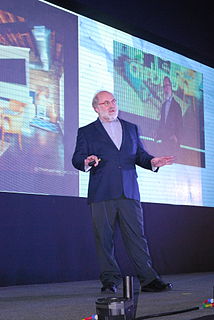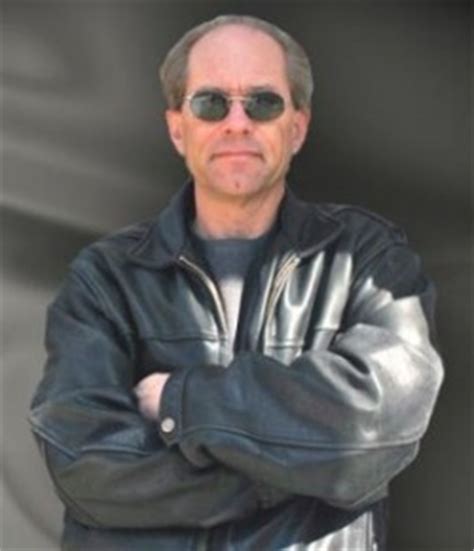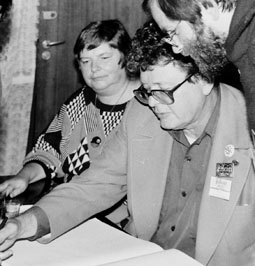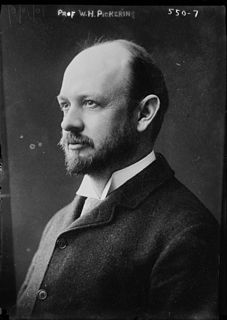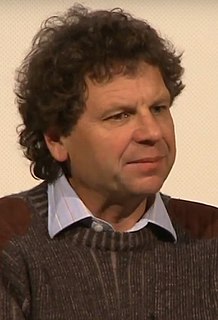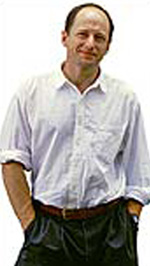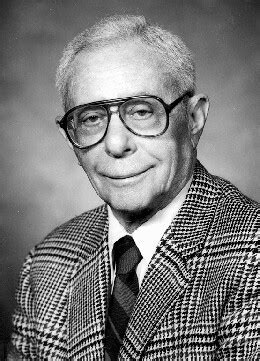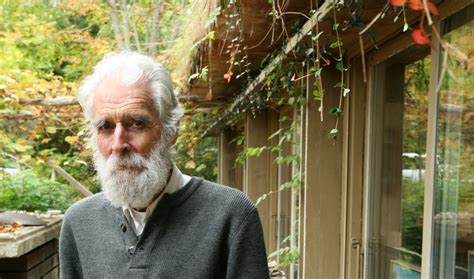Top 1200 Vending Machines Quotes & Sayings - Page 20
Explore popular Vending Machines quotes.
Last updated on November 19, 2024.
The machines that are first invented to perform any particular movement are always the most complex, and succeeding artists generally discover that, with fewer wheels, with fewer principles of motion, than had originally been employed, the same effects may be more easily produced. The first systems, in the same manner, are always the most complex.
We must face the fact that we are on the brink of times when man may be able to magnify his intellectual and inventive capability, just as in the nineteenth century he used machines to magnify his physical capacity. Again, as then, our innocence is lost. And again, of course, the innocence, once lost, cannot be regained. The loss demands attention, not denial.
Since young people would much rather play fast-action, rapidly advancing video games, and gambling laws for slot machines and roulette tables haven't changed much since the 1950s, look for casinos to build large video game tournament centers and allow people to bet on the action, similar to betting on college basketball.
Machines have no political opinions, but they have profound political effects. They demand a strict regimentation of time, and, by abolishing the need for manual skill, have transformed the majority of the population from workers into laborers. There are, that is to say, fewer and fewer jobs which a man can find a pride and satisfaction in doing well, more and more which have no interest in themselves and can be valued only for the money they provide.
It is the duty of all papas and mammas to forbid their children to drink coffee, unless they wish to have little dried-up machines, stunted and old at the age of twenty... once saw a man in London, in Leicester Square, who had been crippled by immoderate indulgence in coffee; he was no longer in any pain, having grown accustomed to his condition, and had cut himself down to five or six cups a day.
People's minds are polluted by these dark pictures of the future from Hollywood: "The Terminator," the Skynet, "The Matrix." It's world where there's no room for humans, or they have to fight against the machines. I think it's just a way, way, way, way in the future. Is it going to happen? I don't know. For me, these debates are not similar, but they resemble debates about how the sun will turn into a supernova in 4 to 5 billion years. Frankly, I don't care.
A multidisciplinary study group ... estimated that it would be 1980 before developments in artificial intelligence make it possible for machines alone to do much thinking or problem solving of military significance. That would leave, say, five years to develop man-computer symbiosis and 15 years to use it. The 15 may be 10 or 500, but those years should be intellectually the most creative and exciting in the history of mankind.
Selling five million units in less than 14 months means DS is the fastest among any game machines ever launched in Japan to hit that level. To achieve this rapid growth, we were required not only to go after frequent game players, but to reel back people who had left games and to make video games enjoyable for those who had not played games at all.
Advances in the technology of communications have proved an unambiguous threat to totalitarian regimes: Fax machines enable dissidents to bypass state-controlled print media; direct-dial telephone makes it difficult for a state to control interpersonal voice communication; and satellite broadcasting makes it possible for information-hungry residents of many closed societies to bypass state-controlled television channels.
When I went to see Valentino in Rome, I discovered 120 women in these ateliers who sew $100,000 dresses. There are no sewing machines. It's all done by hand for thousands of hours. It's a dying art and Valentino is really the last practitioner, the last person at the top of his house, which is why I called it The Last Emperor. That world is gone. You can almost see it slipping away as the cameras are rolling.
Those with engineering skills will build tomorrow's genius computers. But those with the ability to create knowledge of any kind will be the ones who are best able to extract great value from them. The way to create value in the age of genius machines will be to compile and disseminate knowledge that other people will find useful.
Computers and rocket ships are examples of invention, not of understanding. ... All that is needed to build machines is the knowledge that when one thing happens, another thing happens as a result. It's an accumulation of simple patterns. A dog can learn patterns. There is no "why&rdqo"; in those examples. We don't understand why electricity travels. We don't know why light travels at a constant speed forever. All we can do is observe and record patterns.
The people with very hard problems are understood by God. He knows what wretched machines they are trying to drive. Some day he will fling them away and give those people new ones; then they may astonish everyone, for they learned their driving in a hard school. Some of the last will be first and some of the first will be last.
Human rights pale beside the rights of machines. In more and more cities, especially in the great metropolises of the South, people have been banned. Automobiles usurp human space, poison the air, and frequently murder the interlopers who invade their conquered territory -and no one lifts a finger to stop them. Is there a difference between violence that kills by car and that which kills by knife or bullet?" (p.231)
The technology broadens an individual's social field massively and at the same time makes it much, much easier and cheaper to consume gossip. We have the same appetite for gossip, but now its acquisition is even easier than grabbing sugary and fatty foods off a supermarket shelf. And look where that got us. When you watch people in public desperately punching away at their machines, it's hard not to think of addictions.
The not-quite-sort-of lie works here too - often an ad will announce that "Congressman Johnson voted for a bill that gave tax breaks to companies like Enron." True - although the bill allowed all companies to accelerate depreciation of copying machines. Yes, Enron benefited, but Enron also benefited from the revolution of the Earth around the sun. Hardly an argument to freeze the planet in one spot.
It is a truism that the structure of a society is basically determined by its technology. Not in an absolute sense-there may be totally different cultures using identical tools-but the tools settle the possibilities; you can't have interstellar trade without spaceships. A race limited to a single planet, possessing a high knowledge of mechanics but with its basic machines of industry and war requiring a large capital investment, will inevitably tend toward collectivism under one name or another. Free enterprise needs elbow room.
The popular mind often pictures gigantic flying machines speeding across the Atlantic carrying innumerable passengers in a way analogous to our modern steam ships. . . it seems safe to say that such ideas are wholly visionary and even if the machine could get across with one or two passengers the expense would be prohibitive to any but the capitalist who could use his own yacht.
I'm not a big believer in revolutions. What people call revolutions in technology were more of a shift in perception - from big machines to PC's (the technology just evolved, fairly slowly at that), and from PC's to the internet. The next "revolution" is going to be the same thing - not about the technology itself being revolutionary, but a shift in how you look at it and how you use it.
If your body is crying out for a change, or crying out that it's unhappy, for goodness sake listen to it. Our bodies aren't machines that get by with a grease and oil change every 50,000 kilometres. Stress is part of life but if prolonged stress is in our life, we have to ask ourselves if we are in the right place, right frame of mind, or doing the right job.
I kind of enjoy the limits. If you've got no limits, you can do absolutely anything, it's very difficult, actually. I always enjoyed working with machines like color photocopiers and letter-pressing type settings, things where the limits are very apparent. You push the machine to do something, and it tries to do its best, and it usually has wonderful qualities all of its own. Then you get a sort of dialogue going, and the limitations become qualities.
I have a real aversion to machines. I write with a pen. Then I read it to someone who writes it onto the computer. What are those computer letters made of anyway? Light? Too insubstantial. Paper, you can feel it. A pen. There's a connection. A pen goes exactly at your speed, whereas that machine jumps. And then, that machine is waiting for you, just humming "uh-huh, yes?
It is a kind of church, back in these last cores. It may not be your church -- this last one percent of the West – but it is mine, and I am asking unashamedly to be allowed to continue worshipping the miracle of the planet, and the worship of a natural system not yet touched, never touched by the machines of man. A place with the residue of God – the scent, feel, sight, taste, and sound of God – forever fresh upon it
We now have cultural machines so powerful that one singer can reach everybody in the world, and make all the other singers feel inferior because they're not like him. Once that gets started, he gets backed by so much cash and so much power that he becomes a monstrous invader from outer space, crushing the life out of all the other human possibilities. My life has been devoted to opposing that tendency.
The poet Amanda Nadelberg puts it nicely in an interview when she says "often what I listen for in poems is a sense that the writer is a little lost, not deliberately withholding information or turning on the heavy mystery machines, but honestly confounded - by the world? isn't it so? - and letting others listen in on that figuring." That's what engages me - the mind in motion, the drama of someone in the process of thinking - and it's the elusive mystery of those movements that I hope to capture in my essays.
Good nature is, of all moral qualities, the one that the world needs most, and good nature is the result of ease and security, not of a life of arduous struggle. Modern methods of production have given us the possibility of ease and security for all; we have chosen, instead, to have overwork for some and starvation for the others. Hitherto we have continued to be as energetic as we were before there were machines; in this we have been foolish, but there is no reason to go on being foolish for ever.
It cannot suffice to invent new machines, new regulations, new institutions. It is necessary to change and improve our understanding of the true purpose of what we are and what we do in the world. Only such a new understanding will allow us to develop new models of behavior, new scales of values and goals, and thereby invest the global regulations, treaties and institutions with a new spirit and meaning.
It is a tragedy of the first magnitude that millions of people have ceased to use their hands as hands. Nature has bestowed upon us this great gift which is our hands. If the craze for machinery method continues, it is highly likely that a time will come when we shall be so incapacitated and weak that we shall begin to curse ourselves for having forgotten the use of the living machines given to us by God.
The classical argument for why a supposedly decent and moral creature like Homo sapiens can mistreat and even extirpate other species rests upon an extreme position in a continuum. The Cartesian tradition, formulated explicitly in the seventeenth century, but developed in "folk" and other versions throughout human history no doubt, holds that other animals are little more than unfeeling machines, with only humans enjoying "consciousness," however defined.
Now, I'm as appreciative as the next obsessive-compulsive recovering-academic of the vast riches of material becoming available online, thanks to all those Google scanners crouched in the basements of libraries around the world, madly feeding books through their machines. I download obscure tomes onto my iPad and give thanks to the dual gods Gates and Jobs, singing hymns to all the lesser pantheon of geniuses. But there's nothing like a book.
Whereas Absurdism in Europe seemed a logical, almost inevitable response to the irrationality of war, the analogous elements that surfaced in American drama seemed more a response to a materialist society run amok. The American-style Absurdism seemed to spring full-blown out of television advertisements and situation comedies, which had become new myth-making machines.
I use Mac. Not because it's more secure than everything else - because it is actually less secure than Windows - but I use it because it is still under the radar. People who write malicious code want the greatest return on their investment, so they target Windows systems. I still work with Windows in virtual machines.
I think everybody should just turn off their TV machines and make up their own songs about whatever comes to mind-their couch, their friends their loaves of bread. Everybody's got their own songs. There should be so many songs out there that it all turns into one big sound and we can put the whole thing into a pickup truck and let it roll off the edge of the Grand Canyon.
Individuals are not stable things, they are fleeting. Chromosomes too are shuffled into oblivion, like hands of cards soon after they are dealt. But the cards themselves survive the shuffling. The cards are the genes. The genes are not destroyed by crossing-over, they merely change partners and march on. Of course they march on. That is their business. They are the replicators and we are their survival machines. When we have served our purpose we are cast aside. But genes are denizens of geological time: genes are forever.
Well, gentlemen, do you believe in the possibility of aerial locomotion by machines heavier than air? ... You ask yourselves doubtless if this apparatus, so marvellously adapted for aerial locomotion, is susceptible of receiving greater speed. It is not worth while to conquer space if we cannot devour it. I wanted the air to be a solid support to me, and it is. I saw that to struggle against the wind I must be stronger than the wind, and I am.
Destiny was a machine built over time, each choice that you made in life adding another gear, another conveyor belt, another assemblyman. Where you ended up was the product that was spit out at the end—and there was no going back for a redo. You couldn?t take a peek at what you?d manufactured and decide, Oh, wait, I wanted to make sewing machines instead of machine guns; let me go back to the beginning and start again. One shot. That was all you got.
. . . Luddites were those frenzied traditionalists of the early 19th century who toured [England] wrecking new weaving machines on the theory that if they were destroyed . . . old jobs and old ways of life could be preserved . . . At certain times in his life each man is tempted to become a Luddite, for there is always something he would like to go back to. But to be against all change-against change in the abstract-is folly.
To the possible enquiry as to the probable character of a successful flying machine, the writer would answer that in his judgment two types of such machines may eventually be evolved: one, which may be termed the soaring type, and which will carry but a single operator, and another, likely to be developed somewhat later, which may be termed the journeying type, to carry several passengers, and to be provided with a motor.
One of the differences between now and then is that the idea of body image is a much bigger issue now. Back then, just being kind of heavy and barrel-chested passed for heroic. Now, you wouldn't dare to play a hero without a lot of dieting and various specialised abdomen machines. But that was one of the things which was interesting about it and I did want to portray because there's good and bad.
People must have renounced, it seems to me, all natural intelligence to dare to advance that animals are but animated machines.... It appears to me, besides, that such people can never have observed with attention the character of animals, not to have distinguished among them the different voices of need, of suffering, of joy, of pain, of love, of anger, and of all their affections. It would be very strange that they should express so well what they could not feel.
Until very recently, most knowledge was inaccessible to people who couldn't read text. But this is changing. The computer opens up other channels of gaining knowledge. If someone is blind, we now have very good machines that will read to him. If someone can't recognize letters, he also will have access to knowledge through sound and images.
I was listening to a lot of really early house music tracks. Like Chicago house and Detroit. And Marshall Jefferson has a track probably from 1980 - somewhere around there - that doesn't actually have any electronic instruments, no drum machines, nothing. Just a drummer and a piano player and they're playing this house music, but they're actually playing it. I really love that aesthetic and wanted to bring that into the album.
Widely spaced earth-sheltered towns offer sweeping views over the plains. High-speed trains link the communities. Food is grown in the region. Bikeways are everywhere. Nonpolluting hydrogen powers all vehicles. Sunlight and wind generate the hydrogen. Note the earth-covered bridges, the continuous window bands, the wind machines across the farmlands. In this new America, everything is reused, recycled, conserved.
The wind, as a direct motive power, is wholly inapplicable to a system of machine labour, for during a calm season the whole business of the country would be thrown out of gear. Before the era of steam-engines, windmills were tried for draining mines; but though they were powerful machines, they were very irregular, so that in a long tract of calm weather the mines were drowned, and all the workmen thrown idle.
Turkey has had a customs union with Europe since 1996, and there's free trade in everything other than farm products and services. And Turkey has shown that it can compete. It's good at making cheap goods - household appliances, food, detergents, cheap clothes. And they make a lot of white goods, cheap TVs, washing machines, electric appliances, steel, and, recently, auto parts. And Turks are gradually moving into IT.
One day the stars will be as familiar to each man as the landmarks, the curves, and the hills on the road that leads to his door, and one day this will be an airborne life. But by then men will have forgotten how to fly; they will be passengers on machines whose conductors are carefully promoted to a familiarity with labelled buttons, and in whose minds knowledge of the sky and the wind and the way of weather will be extraneous as passing fiction.
My mind, I know, I can prove, hovers on hummingbird wings. It hovers and it churns. And when it's operating at full thrust, the churning does not stop. The machines do not rest, the systems rarely cool. And while I can forget anything of any importance--this is why people tell me secrets--my mind has an uncanny knack for organization when it comes to pain. Nothing tormenting is ever lost, never even diminished in color or intensity or quality of sound.
Typography is the craft of endowing human language with a durable visual form, and thus with an independent existence. Its heartwood is calligraphy - the dance, on a tiny stage, of the living, speaking hand - and its roots reach into living soil, though its branches may be hung each year with new machines. So long as the root lives, typography remains a source of true delight, true knowledge, true surprise.
We now demand glamour and fast-flowing dramatic action. A generation of Christians reared among push buttons and automatic machines is impatient of slower and less direct methods of reaching their goals...The tragic results of this spirit all all about us: shallow lives, hollow religious philosophies...the glorification of men, trust is religious externalities....salesmanship methods, the mistaking of dynamic personality for the power of the Spirit. These and such of these are the symptoms of an evil disease.
Computers are so deeply stupid. What bother me most when they talk about technology is they don't realize how much more exciting their minds are. That machine is stupid. And boring. It does just a few things and then it'll crash. People think, 'I am on the Net, I am in touch with the world'. Wrong! The point is how we work, not how machines work.
It's a certain kind of human compact that obviously you lose as soon as there is a screen and a camera there, so I think we'll always have theater. I think theater will always be a powerful force because we need that human touch, particularly as we spend more and more time with machines, cell phones, computers we start to lose our humanity.
Singularity will be an opt-in scenario for human beings, especially as we draw closer to it. The more that we have the opportunity to interface with and combine ourselves with machines and machinery and electronics - those will all be opt-in moments. Would you choose to have some sort of brain implant? Would you choose to have Google Glasses installed in your eyes? It's all an approach; it's all a glide path to the moment of genuine singularity; genuine artificial intelligence.
With the increasingly important role of intelligent machines in all phases of our lives--military, medical, economic and financial, political--it is odd to keep reading articles with titles such as Whatever Happened to Artificial Intelligence? This is a phenomenon that Turing had predicted: that machine intelligence would become so pervasive, so comfortable, and so well integrated into our information-based economy that people would fail even to notice it.




